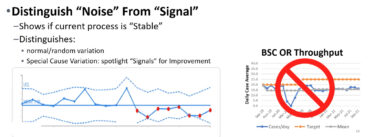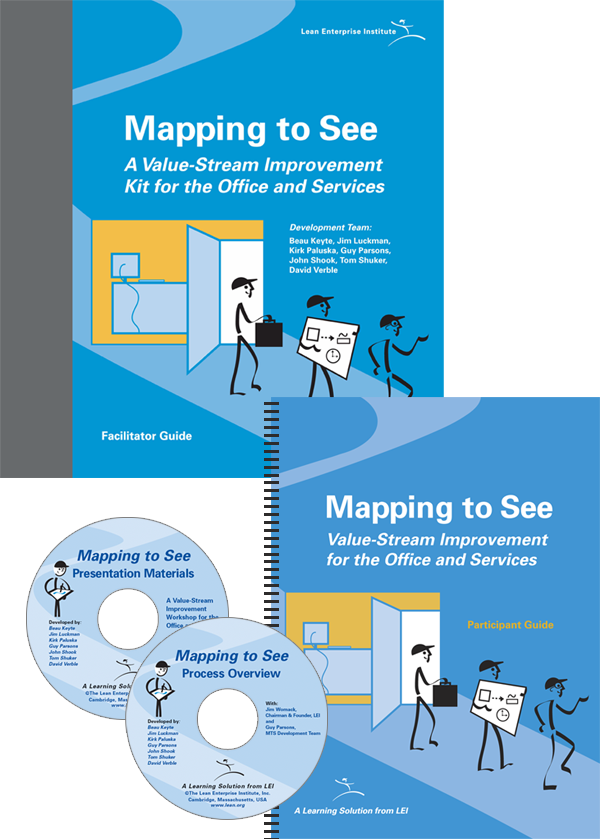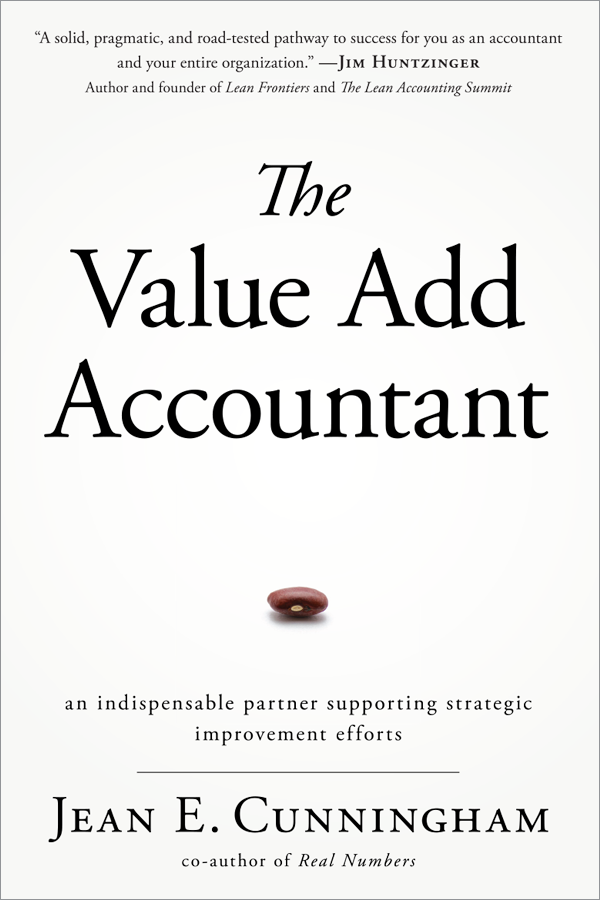I still recall the conversations with our Japanese sensei during the early phase of a lean transformation at an aerospace company that would be punctuated with “do more kaizen, develop kaizen mind” over and over again. The sensei was preaching to the choir. I saw the power of lean, or so I thought. What could be more important than securing the future of our company through the indisputable and significant productivity improvements we were seeing at the end of each five-day kaizen event?
But the improvements weren’t sustainable. Most departments took three very expensive steps forward during a kaizen event and two relentless steps backward within months as they slid back to the old ways of working.
There were exceptions, to be sure, in isolated areas and departments lead by energetic, charismatic leaders making products that fit exactly into the classic lean methods prescribed in kaizen events. These were the areas we would showcase when people came to visit the plant.
Years later HR started to get involved, mostly to help us handle the crescendo of labor relations issues stemming from workers being made to do work in ways they didn’t understand and certainly didn’t agree with. Work and processes changed but people‘s behaviors didn’t.
The saddest part was that it could have been avoided if we implemented a social or “people” system to complement the tools or “technical” system being taught. Simply saying, “do more kaizen, develop kaizen mind” misses the critical people component of lean entirely.
“People Systems” Need Kaizen Too
Lean developed in the context of a management system that evolved as Japan recovered from the war. It grew over time, rooted in their culture and informed by the thought leaders sent to help them. Our senseis worked in this environment their entire careers and really didn’t see it as a distinct topic to be taught. In reflection, it is similar to a goldfish trying to describe water. What was tangible was the method of carrying out the work that was very visible and the differences obvious.
But lean is a management system that relies on a team-based collaborative problem-solving methodology. The target condition we seek is everybody, every day coming together and asking three simple questions:
- How did we do yesterday?
- Where was the waste?
- How can we do it better today?
When we commit to this, people must change responsibilities and behaviors change. Workers now play an integral role in solving problems. Leaders become coaches building the problem-solving muscle of their teams. Everyone is committed to working as a team to identify and solve problems.
So, what does this mean to the HR professional working within an organization dedicated to pursuing a lean thinking culture?
Your company’s people systems — the policies, systems, and practices that surround how employees are recruited, hired, on-boarded, trained, managed, compensated, reviewed, communicated with, and given opportunities for promotion – must support the expected new behaviors.
Culture Headwinds
A lean transformation is a cultural transformation, not just an engineering exercise. Isolated areas can, for a limited time, purely through zeal and energy, be successful. But over time the prevailing headwinds of these systems will take over and the pockets of success will erode and assimilate into the predominant legacy culture we seek to change.
We need to engage HR immediately during a lean transformation. Too often we see organizations putting this off. Sometimes HR is simply “out of the loop,” disengaged until employee unrest starts to become an issue.
Other times, the blockage is more overt due to downsizing and HR becomes focused on the nuts and bolts of pay, benefits, and labor relations. There is always a promise of engaging HR at a later date. But the problem is that the systems we are talking about take time to change due to the vetting required to make changes happen effectively. Postponing engagement of HR in a lean transformation means that changes will not be in place in a timely manner and will not be coordinated with the transformation plan.
We are talking about a specific change that will have well-defined phases over a two-to-five-year period. We need a phased approach to change management that is well informed of the lean transformation strategy.
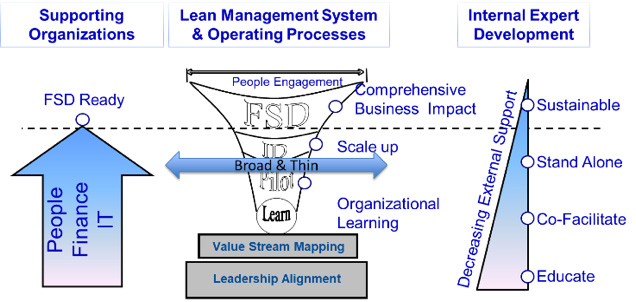
While pilot and initial deployment sites are going deep and building comprehensive lean management systems the rest of the organization is involved to differing degrees. Many others are adopting a thinner tool set in parallel to the deep dives. Support organizations each have their own experiences as well. The change management process has to be sensitive to both the elements of transformation and the impact on each stakeholder group in advance of it occurring
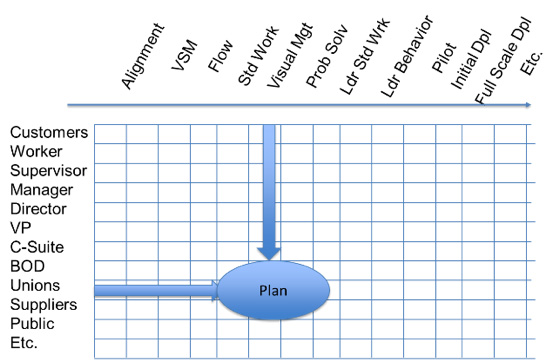
The components of the change strategy will include leadership alignment, value stream analysis, piloting, expanding beyond pilot areas, and ultimately full-scale adoption. Each of these phases must be considered in early planning. Specific stakeholder groups will experience them in different ways at different times, and the change management approach has to be coordinated with that planning. It should keep pace with the changes, such that each stakeholder group is effectively prepared for the specific changes well in advance. Communication, training, and systems implementation need to be properly timed so that when the change does come about, it happens with as little disruption as possible.
The people value stream encompasses all of the key processes employees will encounter from the time they are hired to the time they separate from the organization. Each of those policies, systems, and practices have to be examined closely to determine if they enable or hinder the adoption of a team-based, collaborative, problem-solving culture. Alternatives need to be developed, tested, and fully vetted in advance of broad-scale changes.
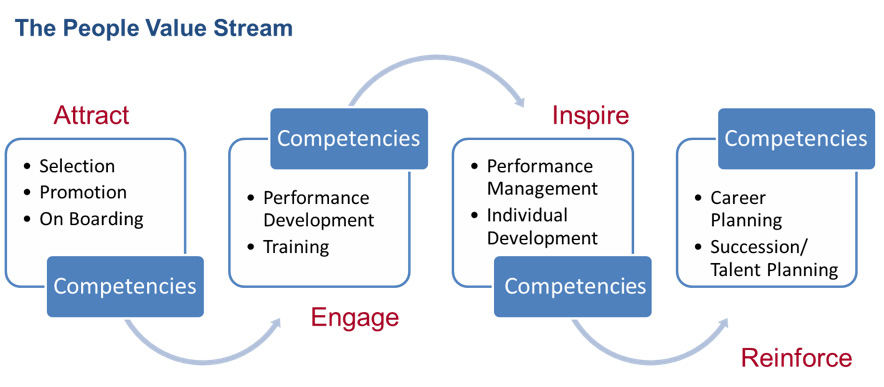
Each phase of the value stream has to be examined and if necessary modified over time to support the culture you seek in the organization going forward.
Finally, HR is the bellwether, keeping line management informed as to the perceptions and attitudes of the workforce. Organizations go through well-understood and predictable reactions to change. HR is in an ideal position to regularly pulse the organization at each juncture of the transformation plan, providing feedback to the management team regarding the current culture versus where they expected to be.
Many efforts at adopting a lean management system end in silent abandonment. While people systems are not the only success factor, they are critical. They also are the one factor we see most often neglected in planning for and executing a successful transformation.
It’s not just engineering; it’s about people.



